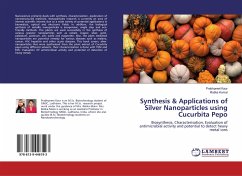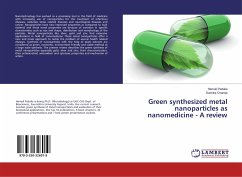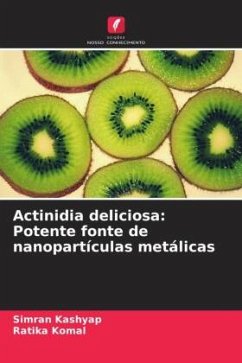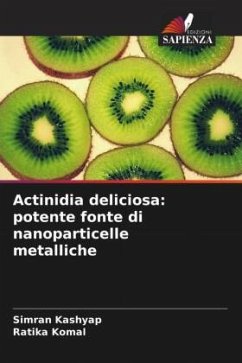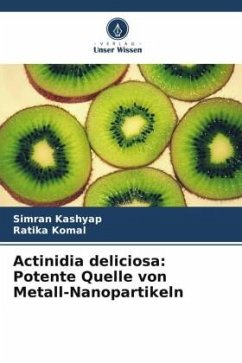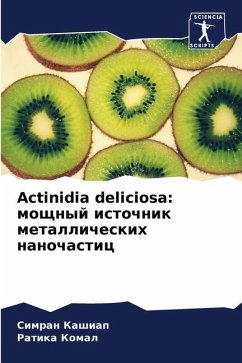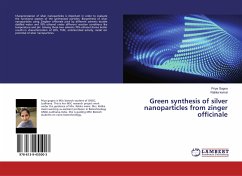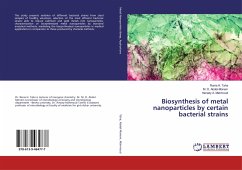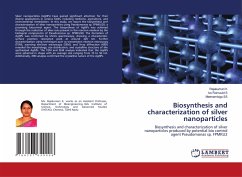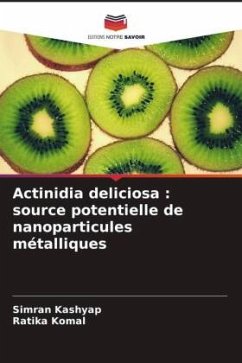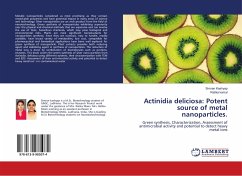
Actinidia deliciosa: Potent source of metal nanoparticles
Green synthesis, Characterization, Assessment of antimicrobial activity and potential to detect heavy metal ions
Versandkostenfrei!
Versandfertig in 6-10 Tagen
27,99 €
inkl. MwSt.

PAYBACK Punkte
14 °P sammeln!
Metallic nanoparticles considered as most promising as they contain remarkable properties and have potential impact in many areas of science and technology. Silver nanoparticles are an arch product from the field of nanotechnology. Green synthesis of nanoparticles exhibiting superiority over the physical and chemical methods that are expensive and can involve the use of toxic, hazardous chemicals, which may pose biological and environmental risks. Plants are most significant bioreductants for nanoparticles synthesis. Since they are nontoxic, easy to handle, readily available, have broad variet...
Metallic nanoparticles considered as most promising as they contain remarkable properties and have potential impact in many areas of science and technology. Silver nanoparticles are an arch product from the field of nanotechnology. Green synthesis of nanoparticles exhibiting superiority over the physical and chemical methods that are expensive and can involve the use of toxic, hazardous chemicals, which may pose biological and environmental risks. Plants are most significant bioreductants for nanoparticles synthesis. Since they are nontoxic, easy to handle, readily available, have broad variety of metabolites, low cost, compatible for pharmaceutical and biomedical applications have been well explored for green synthesis of nanoparticle. Plant extracts provides both reducing agent and stabilizing agent in synthesis of nanoparticles. The reduction of metal ions is done by combination of biomolecules such as proteins, enzymes. This book covers the green synthesis of silver nano particles from Actinidia deliciosa using different solvents, their characterization with TEM and EDS. Assessment of their anti-microbial activity and potential to detect heavy metal ion`s in contaminated water.



